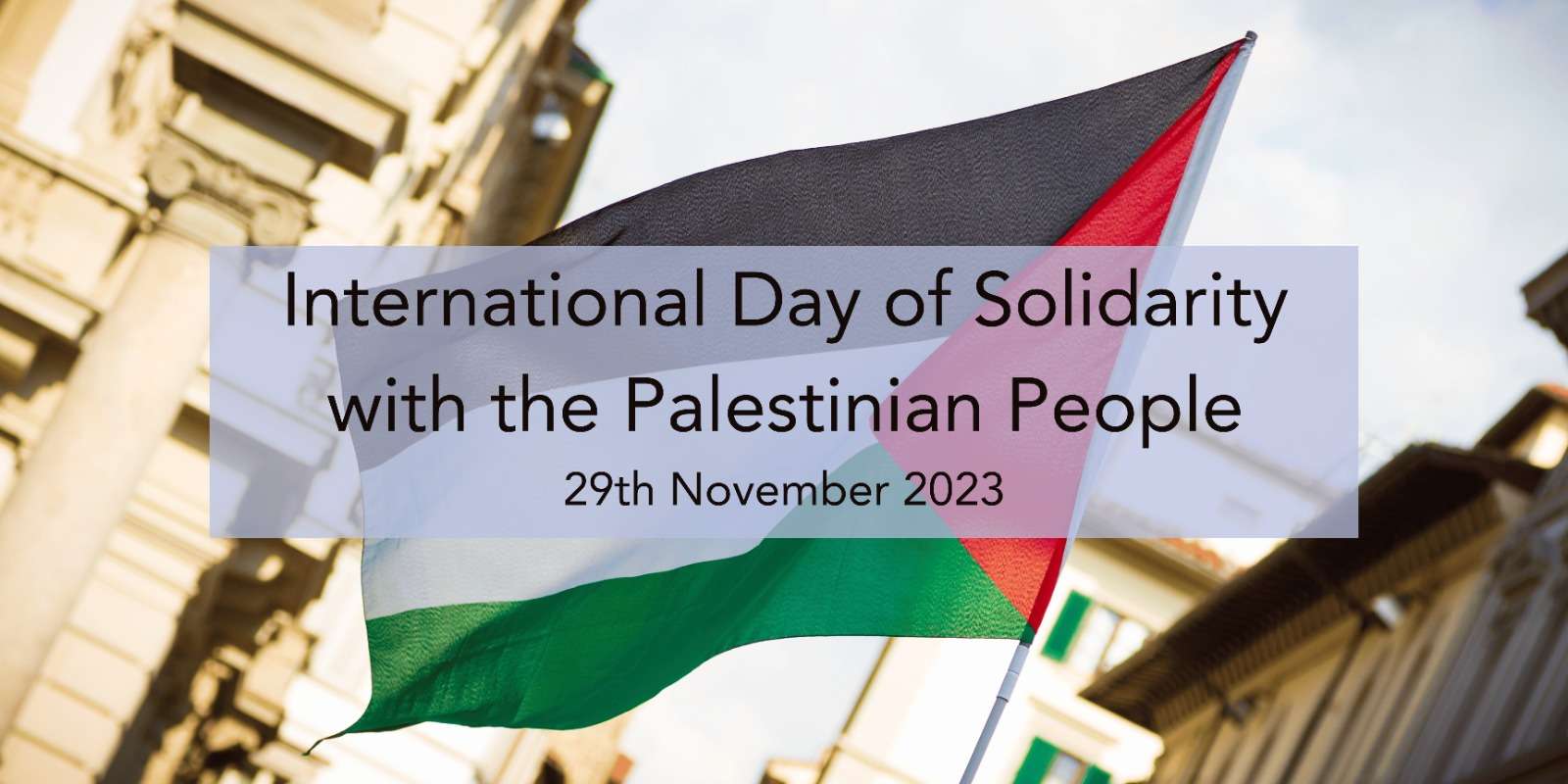International Day of Solidarity with the Palestinian People

The International Day of Solidarity with the Palestinian People is an annual observance that holds profound significance in the realm of global affairs. Recognized by the United Nations, this day serves as a reminder of the ongoing struggles faced by the Palestinian people and the need for international solidarity to address their plight.
History of the Day
The International Day of Solidarity with the Palestinian People was established by the United Nations General Assembly in 1977. It was chosen to coincide with the date of the adoption of UN General Assembly Resolution 181, which called for the partition of Palestine into Jewish and Arab states. This historical context underscores the complexities and challenges that have defined the Palestinian-Israeli conflict for decades.
Significance of the Day
The observance of this day is crucial as it provides a platform for the international community to reaffirm its commitment to the realization of the rights of the Palestinian people. It is an opportunity to draw attention to the persistent issues surrounding the Israeli-Palestinian conflict and to foster awareness about the need for a just and lasting solution.
The theme of the Day
Each year, the International Day of Solidarity with the Palestinian People is marked by a specific theme that reflects the current state of affairs. The themes often encompass issues such as self-determination, statehood, human rights, and the pursuit of a peaceful resolution. These themes serve as focal points for discussions and actions aimed at addressing the pressing challenges faced by Palestine.
Current Challenges
As UPSC aspirants delve into the intricacies of international relations, understanding the contemporary challenges faced by Palestine is crucial. Ongoing issues include territorial disputes, settlement expansions, and access to basic resources. The status of Jerusalem remains a contentious issue, adding complexity to the peace process. The plight of Palestinian refugees and the humanitarian crisis in Gaza are also key concerns that demand international attention.
The Role of International Solidarity
The International Day of Solidarity emphasizes the importance of collective action in addressing the challenges faced by the Palestinian people. International solidarity plays a pivotal role in advocating for the rights of Palestinians, fostering diplomatic efforts, and promoting dialogue between conflicting parties. UPSC aspirants should recognize the significance of diplomatic initiatives, peacekeeping efforts, and humanitarian aid in building a foundation for lasting peace in the region.
Looking Ahead
In the pursuit of a comprehensive understanding of global affairs, UPSC aspirants must consider the future trajectory of the Israeli-Palestinian conflict. The role of major international players, evolving geopolitical dynamics, and the potential for diplomatic breakthroughs should be analyzed. The importance of a two-state solution and the necessity for dialogue to achieve a just and lasting peace should be at the forefront of considerations.
Conclusion
In conclusion, the International Day of Solidarity with the Palestinian People serves as a poignant reminder of the ongoing struggles faced by the Palestinian population. As UPSC aspirants embark on their journey of understanding international relations, it is imperative to grasp the historical context, the current challenges, and the role of international solidarity in addressing the complex issues surrounding Palestine. A nuanced understanding of this topic will empower aspirants to contribute meaningfully to discussions on global affairs and diplomacy.
Important key points that UPSC aspirants should remember regarding the International Day of Solidarity with the Palestinian People:
Establishment of the Day
- The International Day of Solidarity with the Palestinian People was established by the United Nations General Assembly in 1977.
- It coincides with the date of the adoption of UN General Assembly Resolution 181, which proposed the partition of Palestine. Historical Context
- Resolution 181 aimed to create separate Jewish and Arab states in Palestine.
- The historical context highlights the longstanding complexities of the Israeli-Palestinian conflict. Significance of the Day
- The day serves as a reminder of the ongoing struggles faced by the Palestinian people.
- It underscores the international community’s commitment to addressing the rights and concerns of Palestinians. Annual Themes
- Each year, the day is marked by a specific theme reflecting current issues.
- Themes often encompass self-determination, statehood, human rights, and the pursuit of a peaceful resolution. Current Challenges
- Ongoing territorial disputes, settlement expansions, and access to resources are key challenges.
- The status of Jerusalem and the humanitarian crisis in Gaza are critical issues requiring attention. Role of International Solidarity
- International solidarity is crucial in advocating for Palestinian rights.
- Diplomatic initiatives, peacekeeping efforts, and humanitarian aid play vital roles in addressing the challenges. Territorial Disputes
- The Israeli-Palestinian conflict involves territorial disputes, with competing claims to land.
- Settlement expansions remain a contentious issue affecting the peace process. Status of Jerusalem
- Jerusalem’s status is a sensitive and complex aspect of the conflict.
- The city’s significance to both Israelis and Palestinians adds a layer of complexity to peace negotiations. Humanitarian Crisis in Gaza
- Gaza faces a humanitarian crisis, marked by economic challenges and access to necessities.
- The plight of Palestinian refugees is an ongoing concern. Two-State Solution
- The concept of a two-state solution remains a focal point for resolving the conflict.
- Dialogue and negotiations are essential for achieving a just and lasting peace. Geopolitical Dynamics
- UPSC aspirants should analyze the role of major international players in the Israeli-Palestinian conflict.
- Evolving geopolitical dynamics influence the trajectory of the conflict and potential diplomatic breakthroughs. Looking Ahead
- Aspirants must consider the future trajectory of the conflict in their analysis.
- A nuanced understanding of global affairs, diplomatic initiatives, and peacebuilding efforts is crucial.
Tags:
Best teachers in every subject.
Let’s get started
We can teach you anything
